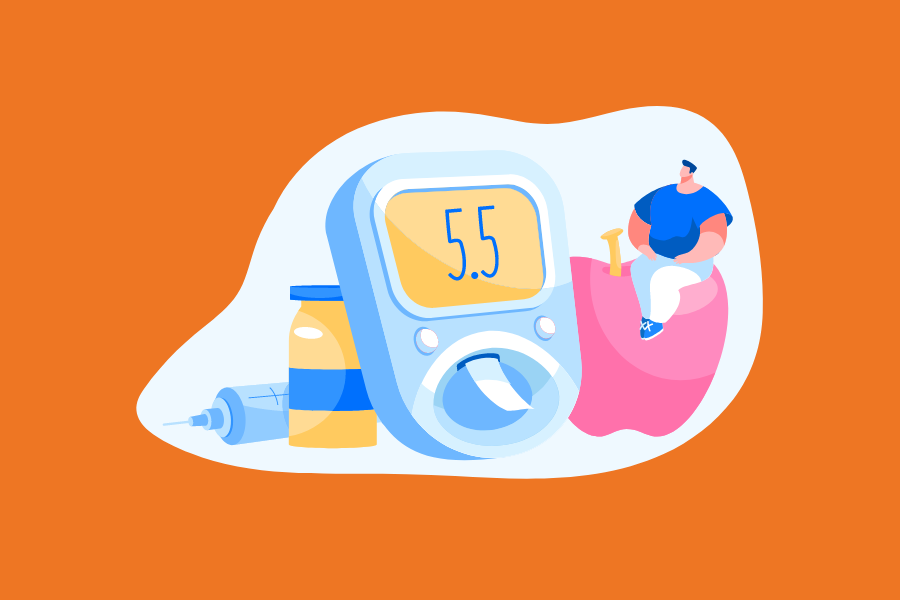
Salud Diabetes Program
Diabetes Care and Management
One Community Health’s Salud program was established in 1986. It has evolved as a home for education, resources, support and screening for patients at risk of diabetes and those diagnosed with diabetes. Salud is a judgment-free zone where patients are supported, coached and connected to peers as they navigate lifestyle changes to reduce diabetes risks. The Salud program offers 1:1 and group classes that lay the groundwork for understanding diabetes. It also offers more personalized care plans for daily meal planning, nutrition, weight loss and medication management. The Salud program is made up of Community Health Workers (CHWs), Registerd Nurses trained in diabetes management, Certified Diabetes Care and Education Specialist (CDCES) and a Family Nurse Practitioner who focuses on treating the whole person – mind, body and spirit. In Salud, we tap into individual motivators and help empower patients as they develop their meaning of Salud! (Health).
To be a part of the Salud program you simply need to be a patient at One Community Health – new patients can establish care with the Salud provider or established patients can sign up for 1:1 or group sessions with a CHW or CDCES.
View a list of our programs below, or call us at 541.386.6380.
Diabetes Retina Screening Update:
To make sure our diabetic eye exams are the best quality possible, we’ve decided to stop using the retina screening cameras in our clinic.
We will still offer eye screenings for eligible diabetic patients through the Casey Eye Institute.
You can also choose to be referred to any eye doctor (ophthalmologist) in the area.
Understanding Diabetes
You likely know someone with diabetes, as an estimated 10.5% of the US population currently has the disease. But what exactly is diabetes? There are three types of diabetes: type 1 diabetes, type 2 diabetes, and gestational diabetes. All types of diabetes have something in common: the body has trouble processing carbohydrates from your food. Normally, the body turns carbohydrates into glucose (sugar) that cells can use as energy. When you have diabetes, your body has a harder time using glucose for fuel. When glucose stays in your blood for too long, it can cause long-term health problems.
-
An autoimmune disease where the immune system attacks the pancreas. Eventually, the pancreas becomes so damaged that it can no longer make insulin, and daily supplementation of insulin is required. Type 1 used to be called “juvenile diabetes” because it is usually diagnosed in children and teens.
-
Insulin no longer works as well, and your body has trouble moving glucose from blood vessels into cells, which is called ‘insulin resistance’. The pancreas responds by sending more and more insulin, and over time can become damaged as a result. Too much sugar is left in your blood which damages the body and can cause heart disease, blindness, kidney disease, and other serious health issues. Treatments include lifestyle changes, medication, and insulin supplementation.
Type 2 diabetes is by far the most common type of diabetes in the United States. Treatment includes eating balanced meals , getting regular physical activity, managing stress levels, and taking any medications prescribed by your provider.
-
Pregnancy temporarily causes insulin resistance and other issues in glucose and insulin regulation. Treatment includes monitoring how many carbohydrates are eaten, physical activity, and sometimes medication and insulin supplementation. It is usually resolved after pregnancy but sometimes it will turn into prediabetes or type 2 diabetes.
Cooking Classes
Join us for ‘Salud’s Kitchen’, an interactive cooking class led by Registered Nurse Silvia Maciel. Our cooking classes are focused on creating healthier versions of traditional foods, making health eating easy and delicious. Learn more about the classes by visiting our group calendar HERE.
Exercise Classes
Zumba, yoga, and strength training classes at our clinics in The Dalles and Hood River. All ages, experience levels, and bodies are welcome, and no exercise experience is needed. Classes are offered in Spanish and English.







Get Moving with One Community Health. Your Destination for Energizing Exercise Classes!
A good reminder to women to take care of themselves, and to make their health a priority by scheduling regular appointments.
OCH’s 4-week course covering topics that support diabetes patients in managing their health outcomes.
We have been busy this past year, but remained focused on delivering excellent patient care.